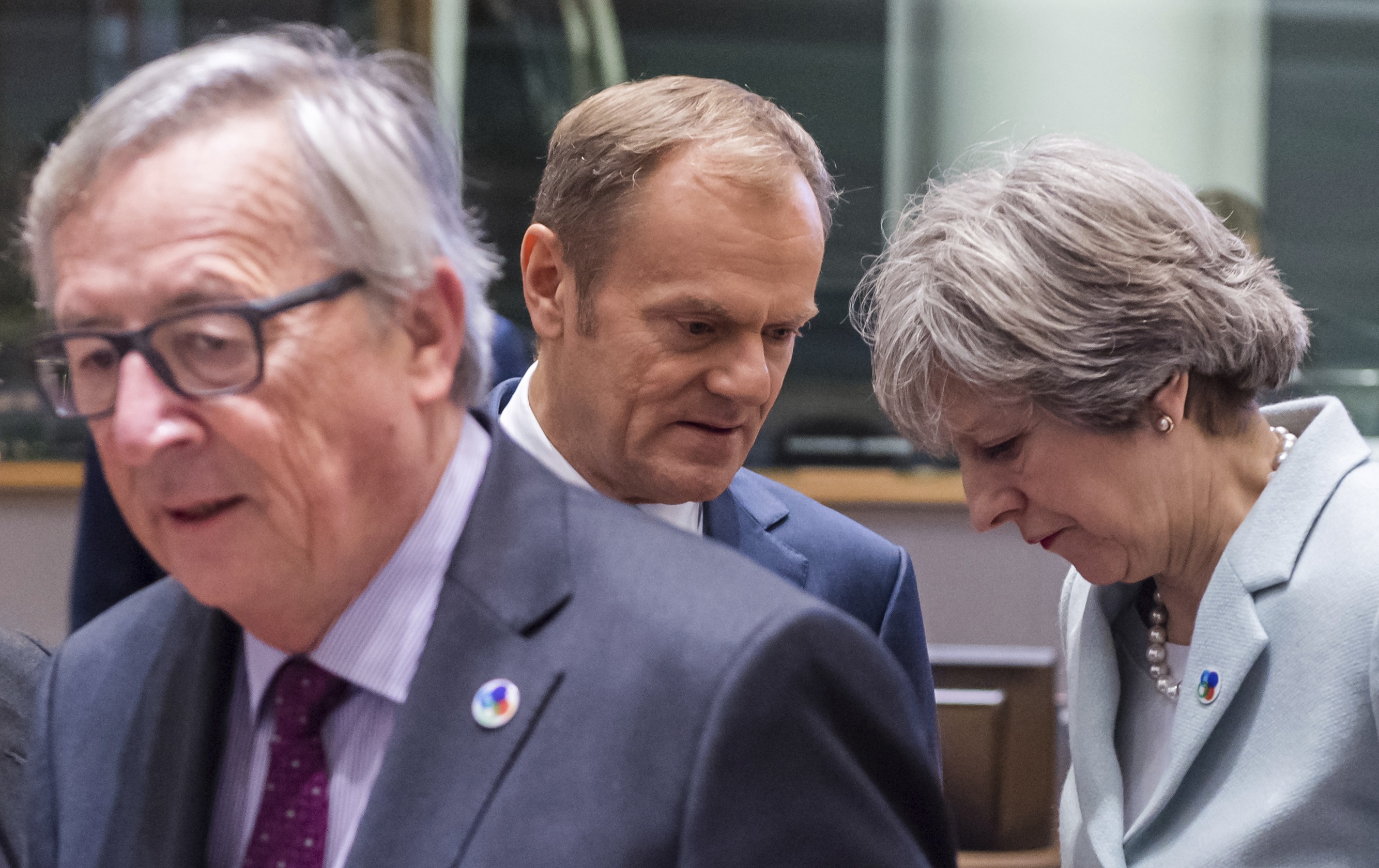
In his invitation to Wednesday's Brussels summit to discuss Prime Minister Theresa May's request for a delay to the United Kingdom's scheduled Friday departure from the EU, Tusk said: "I believe we should also discuss an alternative, longer extension. One possibility would be a flexible extension, which would last only as long as necessary and no longer than one year."
Tusk said such an extension would have to be conditional to allay fears Britain could stymie EU decision making if it remains a member. He says conditions would include not reopening the withdrawal agreement and the UK continuing to sincerely cooperate with the bloc.
France softened its stance on Tuesday, showing willingness to accept yet another delay in Brexit, diminishing the chances that Britain would crash out of the EU this week without any future plan.
But British Prime Minister Theresa May still had a rough day ahead as she headed to an emergency summit in Brussels on Wednesday to plead for a new Brexit extension - for the second time in three weeks. Such gatherings aren't getting any friendlier.
With nearly everyone fully resigned to Britain's departure from the EU, two questions took centre stageon Tuesday: How - and when - to get the UK politely out the door.
EU countries, especially France, have become increasingly exasperated with the political division and uncertainty in Britain about a way forward.
The bloc's leaders have tried to help May over the past two years of negotiations, even after she missed her hand-picked Brexit departure date on March 29 because of a parliamentary revolt. After obtaining a delay until Friday, she will be asking for another postponement that lasts until June 30 at the special EU summit.
On a charm offensive with key leaders, May flew first to Berlin on Tuesday to plead for good terms with German Chancellor Angela Merkel, and then set off for Paris for an encounter with President Emmanuel Macron, seen as her counterpart with the toughest demands.
"France is really trying to play bad cop here," said Larissa Brunner, an analyst at European Policy Center, referring to French insistence that another extension to her deadline must come with strings attached and assurances from London.
However, an official in Macron's office said France was ready to accept a new delay.
While Macron still has a long list of conditions, it was a notable shift in France's tone compared to last week. The reason for the change was unclear, though concerns have been growing about how badly a hard Brexit would hit the French economy, too. France was also encouraged by May's outreach last week to Britain's political opposition to find a compromise, and Macron may have been swayed in part by a meeting with the Irish prime minister.
France, which has had a love-hate relationship with Britain for about 1000 years, is now at the forefront to get the EU to take some decisive action.
"We won't be able to perpetually live with the exit of Brexit," French Foreign Minister Jean-Yves Le Drian said over the weekend. "At some point there is an exit."
Germany thinks likewise. "There isn't an endless readiness to keep talking about delays so long as there is no substantial progress on the British side," said Michael Roth, Germany's deputy foreign minister.

All eyes are now turned toward Macron, who has it in his power to force Britain to choose between a no-deal Brexit on Friday and cancelling its departure altogether.
A drastic cliff-edge departure would have huge costs to businesses and trade across the English Channel and be very cumbersome to travellers as it would hit airports, ports, tariff rules and standard regulations overnight.
EU rules say that any extension to the Brexit deadline needs unanimity among the 27 other member states, and even if smaller member states would be hard-pressed to do it on their own, France has never shied away from being an EU leader - even at the expense of Britain.
After all, French President Charles De Gaulle twice vetoed British membership in the 1960s, and the two countries long fought tooth and nail over everything from farming to fishing rights to how much Britain should pay into the EU budget.
Add to that France's long-held championing of state oversight of the economy as opposed to Britain's staunch defense of free-market liberalism, and the potential for political infighting has always been there.
Among conditions France is now setting to agree to a new delay: A "credible prospect" of some kind of solution to the British political deadlock. A promise that Britain won't keep asking for more delays. And guarantees that Britain would not be involved in future EU decisions while its Brexit drama is playing out.
"The longer the extension might be, the more guarantees are needed," the French official said, speaking on condition he not be named in keeping with presidential policy.
Every British initiative to get a deal has floundered so far. Several days of talks between May's Conservative government and the main opposition Labour Party tried to find a compromise Brexit deal have failed to produce a breakthrough. Labour favours a softer Brexit than the government has proposed, and wants to retain a close economic relationship with the bloc.












